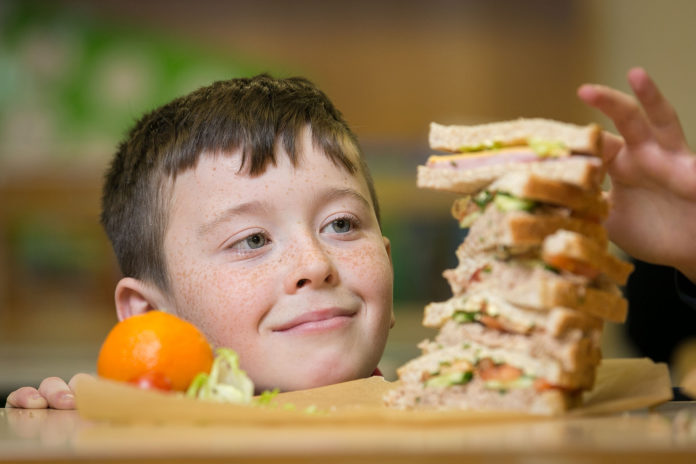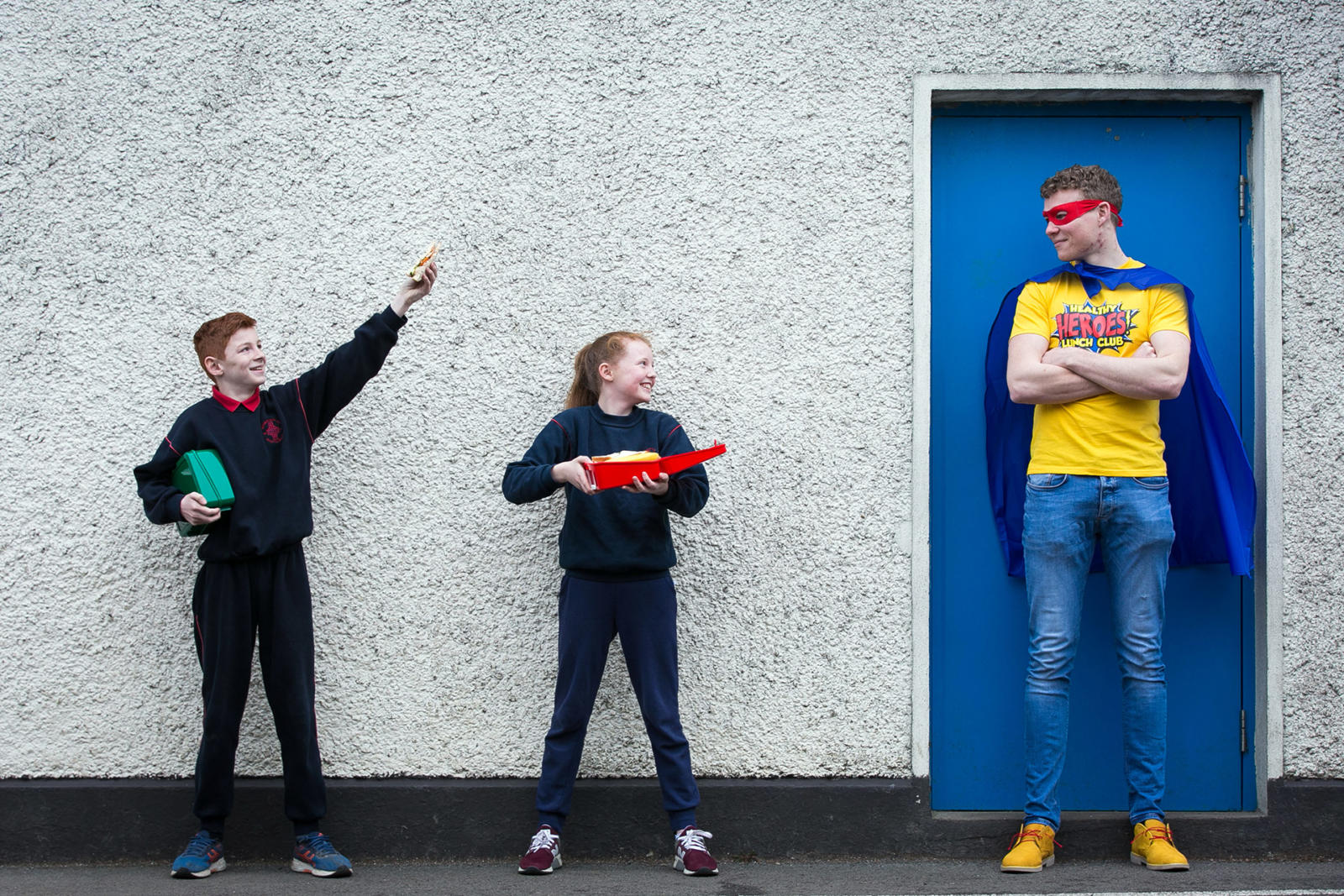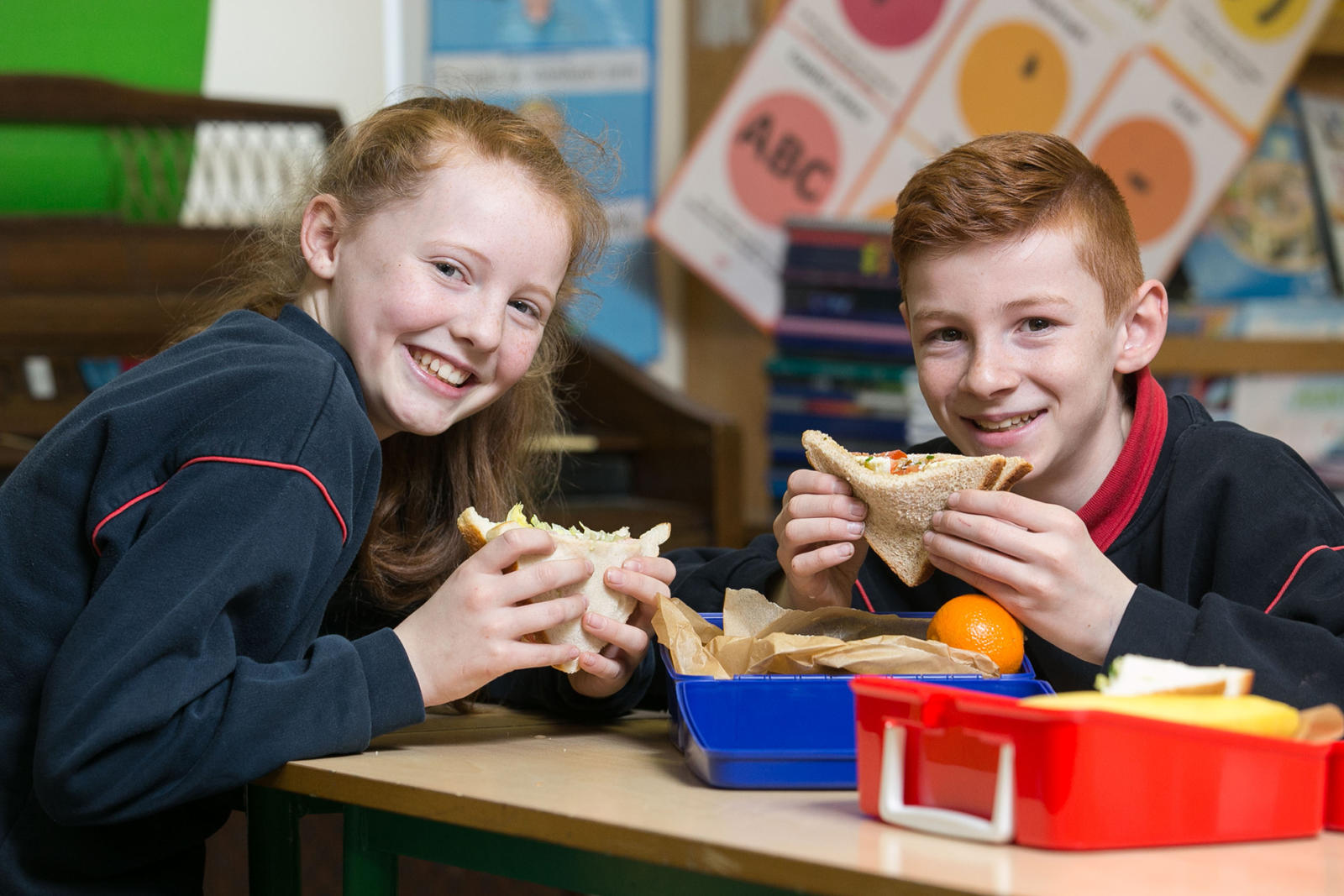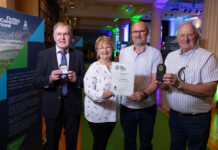
— Peer learning schools programme aims to change Cork children’s eating habits —
While childhood obesity levels in Ireland are stabilising, at least one in five children nationally are still overweight or obese*. However, a primary schools’ initiative run by students for students is helping children of all ages to change their eating habits for the better.
Now in its sixth year, schools in Cork and across the country are being invited to take part in the 2019 Healthy Heroes Lunch Club programme which has just been launched by the Irish Bread Bakers Association (IBBA) and Bord Bia.
The healthy lunchtime programme has been designed by teachers and behaviour change experts with the support of Dr Mary McCreery, one of Ireland’s leading consultant nutritionists and dieticians.
It allows children to learn about nutrition and boost their activity levels, all while having lots of fun in a non-competitive environment.

Through its peer learning approach sixth class students mentor younger students on the importance of nutrition and being active, providing the older children with an opportunity to foster valuable leadership, teamwork and communication skills.
According to Dr McCreery this “tiny teach” peer learning approach is one of the reasons for the programme’s success.
“The classroom is the perfect place to help improve children’s knowledge of food and what they eat for lunch. Incorporating healthy eating habits from a young age and in a playful environment is a vital stepping-stone to their future food habits.
“One of the aims of this programme is to decrease the amount of treat foods and increase the nutritional value of the lunch box and older children can be a very important influence here.
“Not only can they act as good role models, younger children can feel more comfortable and open when interacting with a peer as they share a similar way of talking, which allows for greater understanding of the important nutrition and exercise messages that this programme is conveying,” she said.

The school lunch box should provide about 25% – 35% of a child’s energy and nutrient needs. Yet Dr McCreery says that studies show packed lunches are deficient in ‘healthy’ foods and tend to be high in sugar, saturated fat and salt, while low on starchy foods and fibre.
As part of the Healthy Heroes Lunch Club, children form a lunch club that meets to eat together regularly, where nutrition is addressed informally and in a fun way, using materials provided in the Healthy Heroes Lunch Club pack.
The programme contains useful tips and suggestions on ways to include fruit and vegetables in lunch boxes as well as easy – to- understand information on the food pyramid and the contents of the ideal lunch box.
The lunch of the month meanwhile offers suggestions that are designed to encourage children to have a more balanced lunch.
Led by sixth class pupils, with guidance from their teachers, the children run activities, giving them the opportunity to develop both valuable communication and social skills. This leadership method, promotes a sense of cooperation and heightened self-esteem amongst the older children.
For more information on the programme and how schools can get involved in the Healthy Heroes Lunch Club, email healthyheroes@realnation.ie.
* The Childhood Obesity Surveillance Initiative (COSI) in the Republic of Ireland – Findings from 2008, 2010, 2012 and 2015











